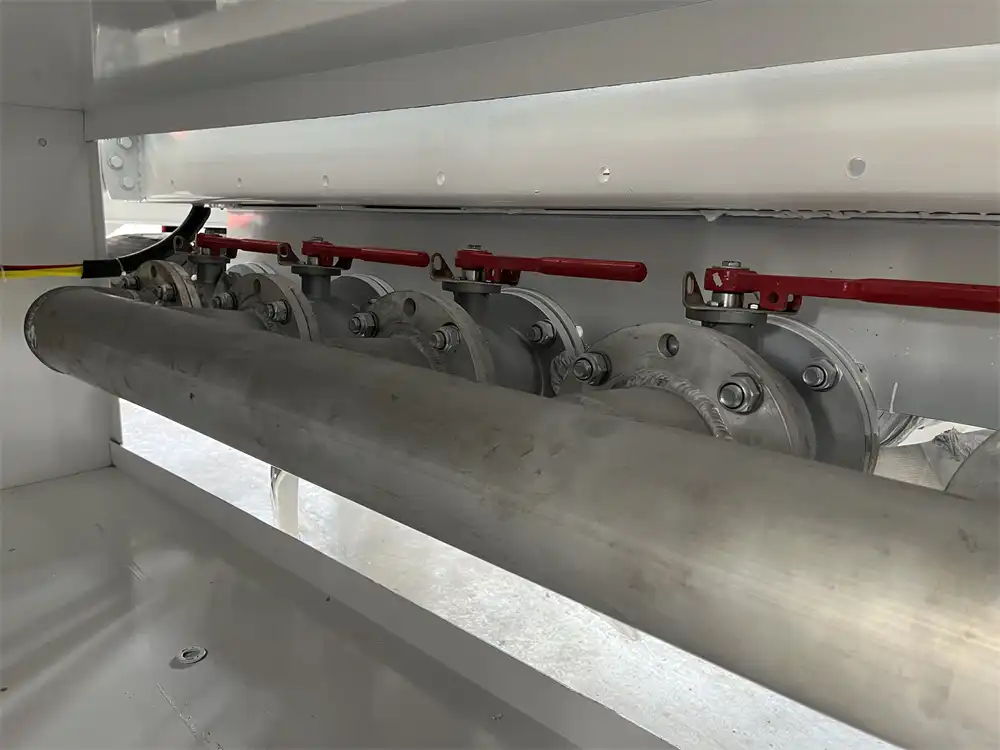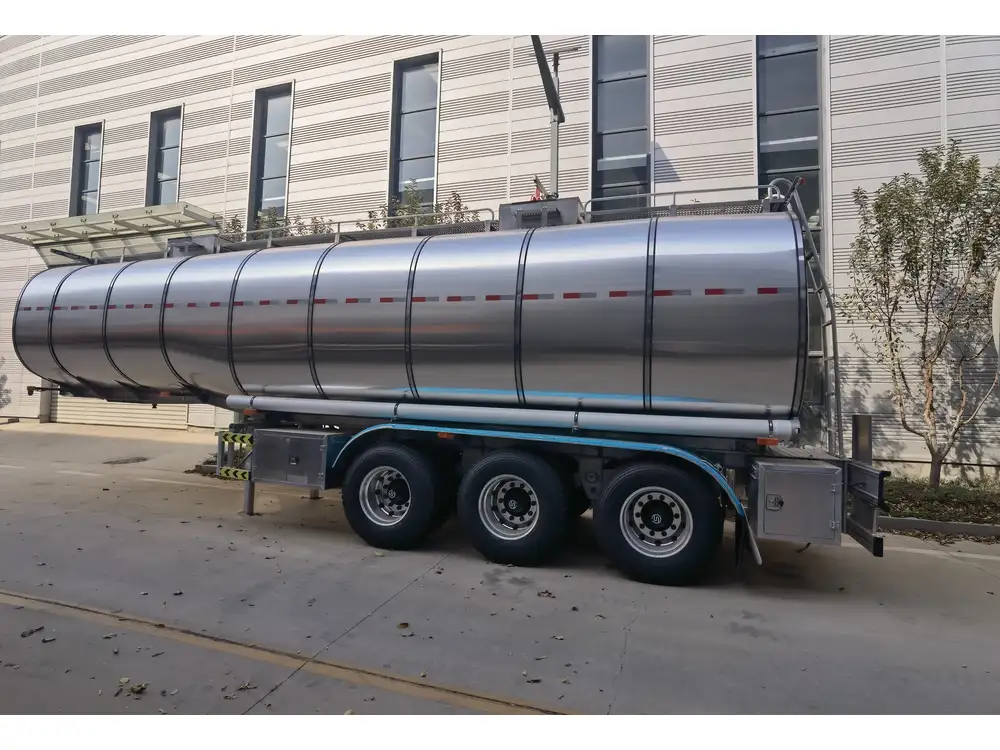Introduction to Road Fuel Tankers
In today’s dynamic transportation ecosystem, the significance of specialized road fuel tankers cannot be overstated. Fuel tankers serve as a crucial link in the energy chain, facilitating the distribution of essential liquids like petrol, diesel, and other petroleum products. They are engineered for durability and efficiency, adapting to a landscape that demands unwavering reliability and safety. For companies operating in the energy sector, procuring the right equipment is paramount. Here, we explore the intricate details surrounding road fuel tankers for sale in South Africa.
Types of Road Fuel Tankers
Understanding the various types of fuel tankers available in South Africa is vital for making an informed investment. Fuel tankers can be categorized based on their design and intended use:
| Type | Description |
|---|---|
| Single Compartment | Designed for transporting one type of fuel, ideal for businesses with specific fuel needs. |
| Multi-Compartment | Equipped with multiple compartments, these tankers allow for the transport of different fuels simultaneously. |
| Vacuum Tankers | Capable of collecting and conveying liquids under vacuum pressure, ideal for services requiring suction. |
| B-Train Tankers | Composed of two trailers connected by a dolly, these provide better maneuverability and higher payloads. |
Each type caters to different requirements, such as payload, fuel type, or dimensions, making it crucial to evaluate your operational needs carefully.

Key Features to Consider
When considering road fuel tankers for sale in South Africa, a myriad of features must be assessed. These features not only ensure compliance with safety regulations but also enhance operational efficiencies. Here’s a breakdown of critical attributes:
Safety Systems
- Anti-Surge Technology: Reduces the sloshing of liquid cargo, improving vehicle stability during transit.
- Emergency Shutoff Valves: Automatically halt fuel flow in case of emergencies, significantly minimizing risks.
Material and Construction
| Material | Advantages |
|---|---|
| Aluminum | Lighter, reducing fuel consumption and operational costs. |
| Steel | Offers superior durability, especially for rough terrains. |

Capacity and Dimensions
- Tank Capacity: Common sizes range between 5,000 to 40,000 liters.
- Dimensions: Refer to local road regulations for permissible sizes.
Fuel Dispensing Systems
Advanced dispensing systems streamline the process from tanker to depot. Opt for tankers equipped with:
- Automatic Metering Systems: Ensure precise dispensing with minimal waste.
- Integrated Safety Features: Such as overflow prevention and auto-shutoff functionalities.
Legal and Regulatory Compliance
In South Africa, adherence to stringent regulations and protocols is essential for operating road fuel tankers. The National Regulator for Compulsory Specifications (NRCS) governs the specifications to ensure safety and environmental sustainability. Key regulations include:
- Licensing Requirements: Ensure all vehicles are properly licensed for hazardous materials transport.
- Safety Training for Drivers: Mandatory for compliance and effective handling during transport.
Failure to comply with these guidelines can lead to significant fines and operational disruptions. Working with a manufacturer like CarMax Vehicle ensures access to compliant vehicles, tailored to local specifications.

Maintenance and Serviceability
Maintaining your road fuel tanker is crucial for optimal performance and longevity. Scheduled maintenance programs can help identify potential issues before they escalate. Essential service components include:
| Maintenance Task | Frequency |
|---|---|
| Oil Changes | Every 5,000 km |
| Brake Inspections | Every 10,000 km |
| Tank Cleanouts | Annually |
Choosing road fuel tankers from reputable manufacturers like CarMax Trailer not only assures quality but also opens avenues for reliable after-sales service.
Buying Considerations: New vs. Used
When searching for road fuel tankers for sale in South Africa, buyers face a pivotal choice: new or used. Each option has its advantages and disadvantages.
New Fuel Tankers
Pros:
- Advanced technology
- Customizable features
- Comprehensive warranty packages
Cons:
- Higher purchase cost
- Longer lead times for manufacturing

Used Fuel Tankers
Pros:
- Lower upfront cost
- Immediate availability
Cons:
- Potential hidden maintenance costs
- Limited options for custom features
Conduct thorough checks if opting for a used tanker. Assess the vehicle’s service history, conduct inspections, and review compliance documentation.
Financing Your Fuel Tanker
Securing optimal financing solutions is essential for businesses seeking to purchase road fuel tankers. Explore various financing options, including:
- Direct Purchase: Best for companies with sufficient capital reserves.
- Leasing: Offers flexibility and facilitates cash flow management.
- Loans: Engaging with financial institutions specializing in transport financing can yield favorable terms.
Analyzing your financial strategy in conjunction with operational needs will ensure a sustainable investment.
The Future of Fuel Transport
As the transportation industry evolves, so does technology in fuel distribution. Emerging trends, such as the integration of IoT (Internet of Things) sensors, paint a compelling picture of the future. These advancements enable:
- Real-Time Monitoring: Track fuel levels and vehicle location dynamically.
- Predictive Maintenance Alerts: Proactively manage vehicle performance.
By aligning with an innovative manufacturer like CarMax Trailer, businesses can stay ahead of these technological changes, enhancing operational efficiency and safety.

Conclusion
In navigating the intricate landscape of road fuel tankers for sale in South Africa, it’s imperative to consider an array of factors: types, key features, compliance requirements, and future trends. Partnering with a trusted manufacturer like CarMax Vehicle not only secures a quality product but also guarantees ongoing support and adherence to industry standards. This comprehensive understanding lays the groundwork for making a well-informed investment that meets both current and future operational needs.
FAQs
1. What is the average lifespan of a road fuel tanker?
A well-maintained road fuel tanker can last between 15 to 25 years, depending on usage and upkeep.
2. Are there specific maintenance tasks required for fuel tankers?
Yes, regular oil changes, brake inspections, and tank cleanouts are essential for maintaining performance and safety.
3. What safety features should I look for in a fuel tanker?
Look for anti-surge technology, emergency shutoff valves, and an excellent braking system.
4. How do I determine the appropriate size of a fuel tanker for my business?
Consider your typical fuel distribution needs, storage capacities, and comply with local road regulations to decide on the size.












Reviews
There are no reviews yet.